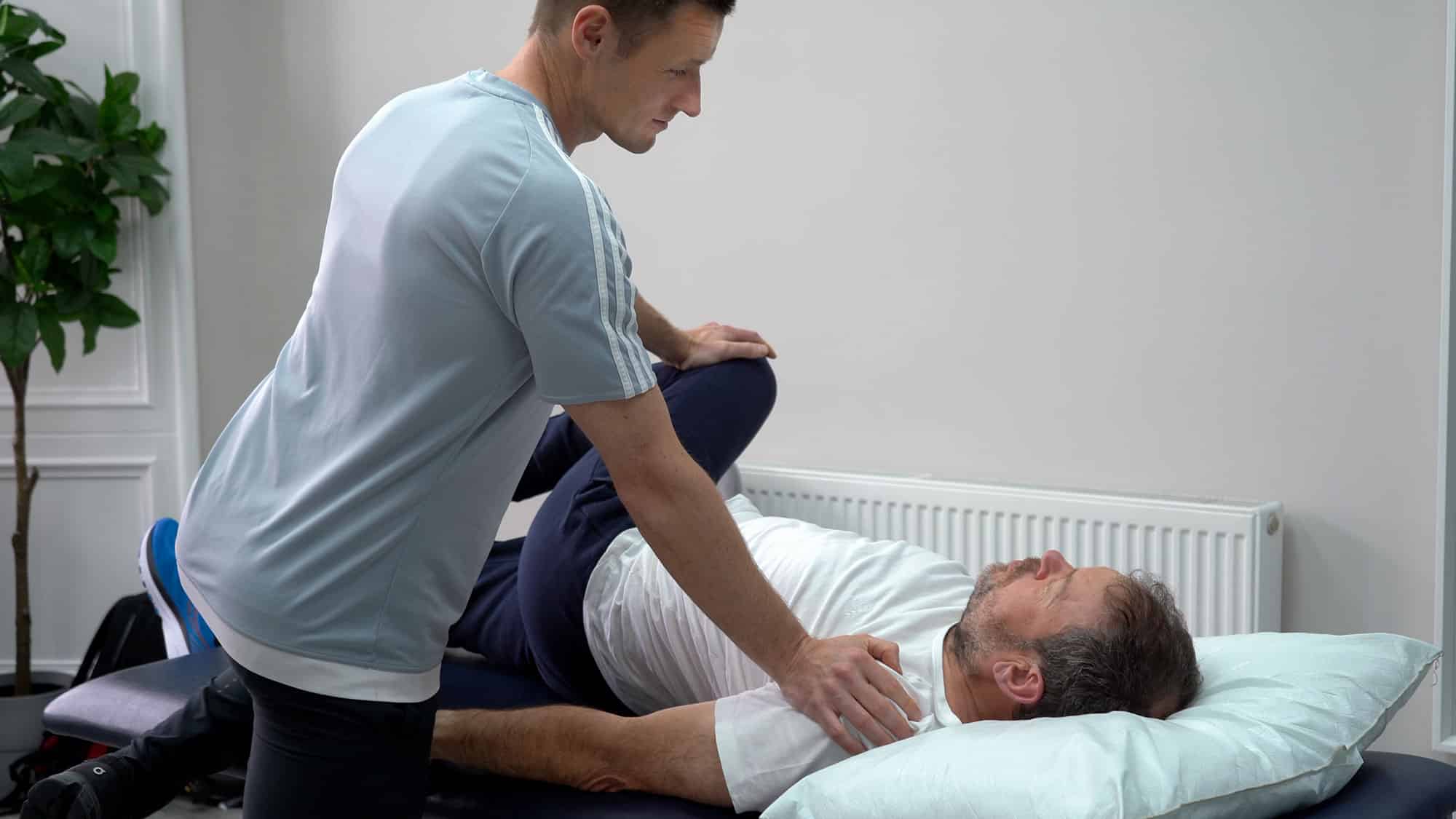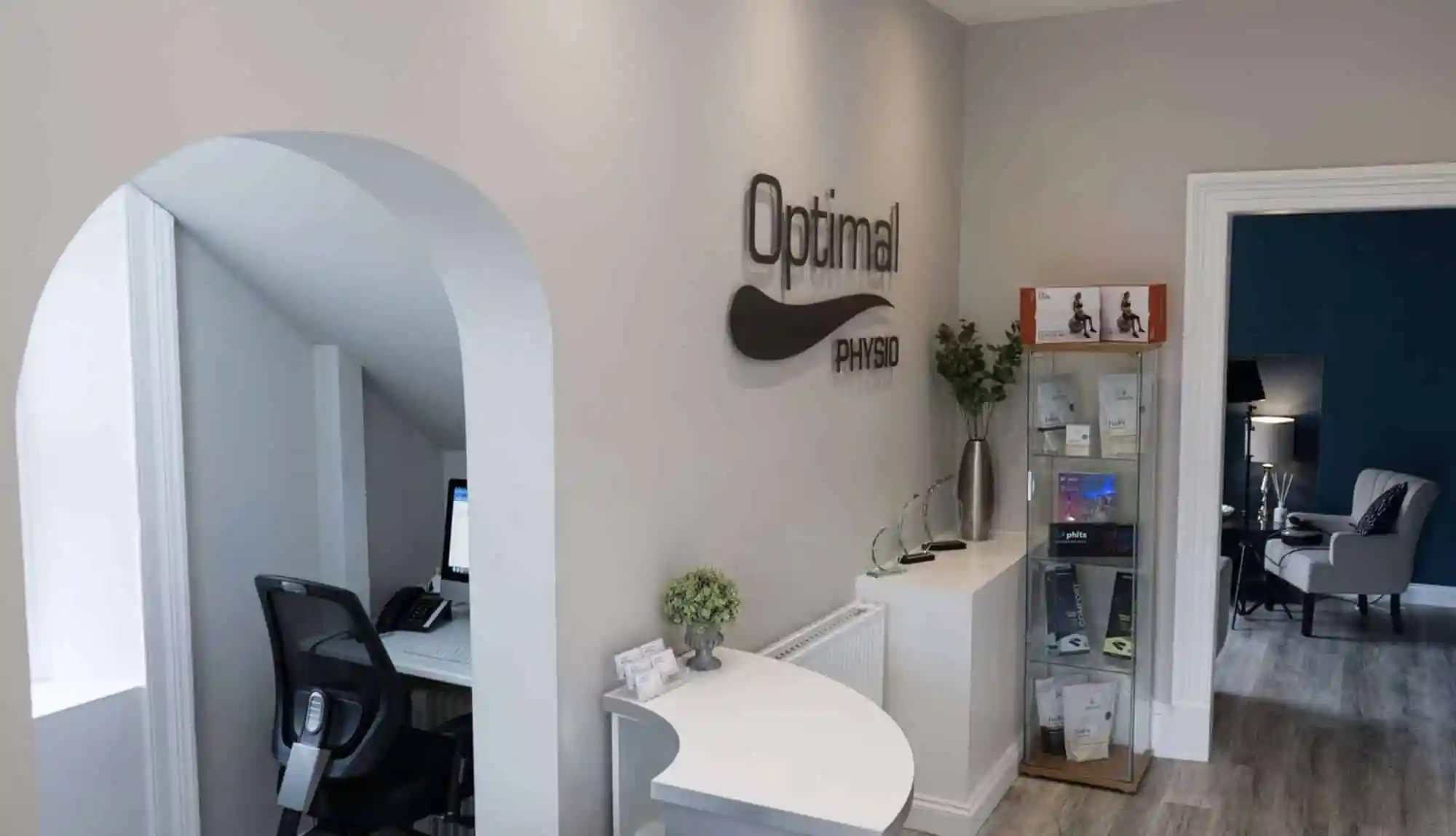Sciatica
The pain can have a sudden or slow onset, and vary in severity. It is felt in the back or buttock and radiates down the leg below the knee into the foot and toes in the distribution of the sciatic nerve. Other symptoms include tingling or numbness and loss of muscle strength in the same leg.
Sciatica is not back pain. In fact it is only present in 5-10% of people with back pain.

Are you worried your sciatica will get worse?
Nerve pain can be tiresome and persistent, but due to having a poor blood supply nerves are slow healers so the sooner you get treatment the better. As the pain continues for days or weeks, you often wonder if it will ever improve, you can feel helpless and unsure about what the next step should be. That’s where we can help.
There can be many different causes of sciatica. A herniated disc, inflamed soft tissue or degenerative vertebral joint can cause pressure on the sciatic nerve roots, resulting in just a few of the potential causes of sciatica. Identifying the underlying cause, and understanding the patient and their lifestyle is key to prescribing the correct rehab exercises and helping your recovery to accelerate.
5 Myths about Sciatica and some little known facts
- Sciatica will go away on its own some rest. It won’t. You need a personalised plan.
- Sciatica is the result of leg issues. It’s not, for example hamstring issues are often treated incorrectly as the real problem is sciatica. Confusion or incorrect diagnosis is unhelpful.
- Sciatica pain will never go away. It will, if you approach it the right way.
- Sciatica can not cause permanent nerve damage.
- Sciatica will only get worse with exercise. This is incorrect it will improve with the right exercises for you and your stage and presentation.
Sciatica affects up to 40% of the population in the UK at least once in their lifetime.
Alternative names for sciatica include ‘radicular pain’, ‘lumbar radiculopathy’, and ‘lumbosacral radicular syndrome’.


Can Physiotherapy Help Sciatica?
If you suffer from sciatica it’s mostly likely something you have put up with for weeks, or months. You eventually get fed up with taking pain relief or it gradually gets worse, more painful and stiffer. You go see you doctor and they give you some more pain relief and advise some rest. It is very hard for the doctor to give you specific advice as their appointment times are very short and usually less than 10minutes. You might have been to the NHS physio or another private physio or chiropractor before and it has not helped or been effective. You might have tried a massage and although this helped, it only lasted for a few hours or days at best. Nothing appears to work. You begin to think it is ‘wear and tear’ and something that you ‘just have to live with’. This can be very worrying and frustrating. We hear this story all the time and there is another way.
Here at Optimal we steer clear of broadcasting “magical” exercises that might help this condition or that pain. We do not hand out silver bullets and quick fixes.
We prefer to create the most effective treatment plan for the individual that encompasses your lifestyle, motivations and crucially your physiology and health goals.
How We Solve Your Sciatica


Solution
- We know so many people who believe “it’s just old age” or “it’s in the family” and even worse “I need a scan to find out what’s really wrong”. That’s why we created our free Sciatica ebook and additional resources to help you understand your sciatic pain and start your recovery today.
- To get your copy just click the button.
- Or if your ready to get better all you have to do is book an appointment, attend and be ready to work hard. We don’t use ultrasound or electrotherapy to help sciatic pain, because we know that doesn’t work. We also know that rest doesn’t work either so if you have had a physio treat you like this before with all passive treatment, you are unlikely to benefit and get the results you want.
FAQs
Do I need to see my GP first for Sciatica?
Do I need an x-ray or scan?
Can I recover from sciatica?
We believe recovery includes prevention of future relapses so this too needs to be addressed.
Isn’t surgery the best way to cure me of sciatica?


Download your free ebook.
There is a lot of misleading and inaccurate information available relating to sciatica. So we have made this ebook to give you free information you can trust. Enter your details below to receive all the latest Optimal Physio news and offers, we’ll also give you a free e-book.